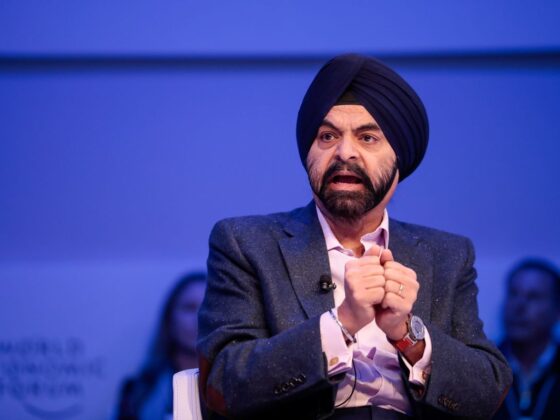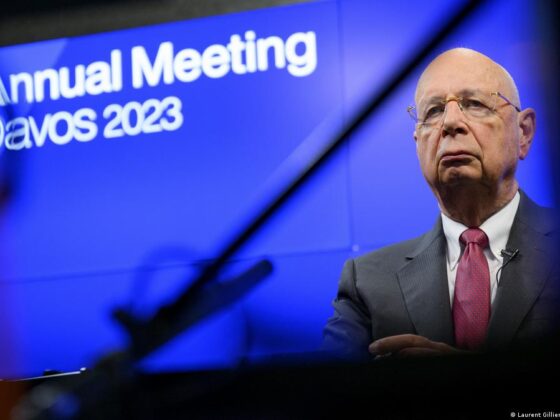Futurists don’t just predict coming events. They also seek to shape them. Each prediction is framed to bring about change in a certain direction, whether by bold promises or doomsday prophecies.
For instance, when you hear warnings that artificial intelligence could outsmart humankind and destroy us all—or more precisely, if you believe those claims—there is no choice but to rethink your long-term strategy. Maybe you smash the machines preemptively. Or maybe you teach the AI to be nice and then jam a Neuralink trode in your brain to keep up with the conversation.
To the extent our immediate decisions are guided by these imagined futures, we’re all unwitting tools of the futurist.
After the spectacular crash of the FTX cryptocurrency exchange, the twin philosophies of “effective altruism” and “longtermism” have invaded the public consciousness. Like an infestation of eusocial termites, once you notice the first effective altruist crawling around the house, you start to see them everywhere.
Effective altruism is an egghead academic movement focused on helping large numbers of people, or perhaps all conscious entities, on a global scale. One popular proposal is to accumulate as much money as possible, then give it away to charity. These strategies often rely on the sorts of elaborate calculations and convoluted ethical frameworks that only “experts” could concoct.
Longtermism takes this do-gooder ball and runs with it into the distant future. Its proponents imagine how our altruistic actions today might benefit all the conscious minds that will eventually come to exist. In theory, that includes untold trillions of humans living in space, as well as mind uploads and AI bots living in vast digital simulations.
You may have problems today. But if we’re gonna be serious about utilitarianism, the highest moral priority belongs to all the cyborg space invaders yet to be. Sorry, but at the end of the day, there are more of them than you.
In practice, these philosophies seem to involve a lot of virtue-signaling and spending of other people’s money. The fat, slovenly FTX frontman Sam Bankman-Fried projected these selfless ideologies as a smokescreen for his crypto Ponzi scheme, where he defrauded investors of billions. Bankman-Fried assured his clients, and the world, that he’d use his gargantuan profits to help save humanity from the next pandemic or nuclear war—or both.
Instead, he blew all the cash on mansions and other luxuries, wasted his time on video games, wrecked his brain with exotic cognitive enhancement drugs, and apparently hosted weird orgies of the repulsive nouveau riche. On the bright side, his hilarious scandal did shed light on the intellectual movements that spawned him, unmasking the delusional arrogance that underpins effective altruism, longtermism, and most elite theorizing.
As I mentioned, both philosophic schools are utilitarian. Advocates seek to maximize happiness for the greatest number of people—or in more universal versions, the greatest number of sentient beings—including all animals and future digital minds. Similar to the ancient belief that the gods require blood to make crops grow, however, they admit sacrifices must be made. As the New York Times writer Walter Duranty said of communist collectivization in 1933, “To put it brutally—you can’t make an omelet without breaking eggs.”
As a hypothetical example, if you wanted to stop a deadly pandemic, then for the good of all humankind you’d have to lock vaccine-refusers in their homes. If they kept sneaking out, you’d send cops to beat the living hell out of them or maybe lock them in quarantine camps. When push comes to forced jabs, kill em’ all with kindness.
Of greater interest, both philosophies also overlap and derive from transhumanism—that infamous techno-cult whose members believe humans shall be as gods by merging with machines. Oxford University was the crucible of effective altruism and longtermism, where the well-paid philosopher and avowed transhumanist Nick Bostrom had a decisive impact on the movement.
Bostrom is best known for warning that artificial intelligence is an “existential risk” to humanity in his 2014 book Superintelligence: Paths, Dangers, Strategies. His ideas were enormously influential on the world’s richest transhumanist, Elon Musk, who suggests we implant brain-computer interfaces to keep pace with machine intelligence.
Bostrom is also a founding member of the Future of Humanity Institute, located at Oxford, to which Musk donated £1 million. Futurists can always use more money to save us from the futures they’re predicting.

This elite transition from techno-optimism to whitewashed corporate altruism is readily apparent in the global agendas set at the World Economic Forum. In 2016, WEF chairman Klaus Schwab published The Fourth Industrial Revolution, in which he announced the “merging of the physical, digital, and biological worlds.”
Four years later, his abhorrent tract The Great Reset identified the COVID-19 pandemic an “unprecedented opportunity” to accelerate this technological revolution. Naturally, normal people across the planet were furious. So, in December of 2021, Schwab reassured everyone of the elites’ good intentions with a follow-up volume entitled The Great Narrative.
“This emerging narrative is most helpful because it shows that this capacity to care,” he and his co-author wrote, “can be harnessed for social good.”
To put it another way, your bleeding heart can be used like a battery to power the Machine.
Longtermism and effective altruism first showed up on my radar last August, when Elon Musk quote-tweeted a plug for William MacAskill’s then forthcoming book What We Owe the Future. “It makes the case for longtermism,” the Oxford philosopher wrote, “the view that positively affecting the long-run future is a key moral priority of our time.” Incidentally, MacAskill was also a mentor to Bankman-Fried, and advised FTX on the mystical path of effective altruism.
“Worth reading,” Musk responded, breaking from his usual vague self-descriptions. “This is a close match for my philosophy.”
Worth reading. This is a close match for my philosophy. https://t.co/cWEM6QBobY
— Elon Musk (@elonmusk) August 2, 2022
Check out the rest of this article on Joe’s Substack.














